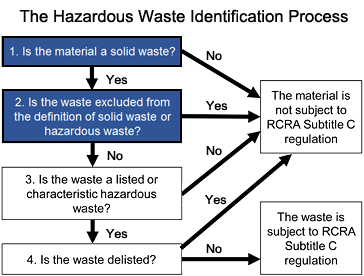Fascination About Reclaim Waste
Table of Contents7 Easy Facts About Reclaim Waste ExplainedReclaim Waste for DummiesSee This Report about Reclaim WasteTop Guidelines Of Reclaim WasteThe Only Guide to Reclaim Waste
Domestic sewer waste refers to the waste and products from a domestic septic storage tank. The correct administration and disposal of residential sewage waste need fluid waste to be moved to a sewage therapy plant where the correct approaches and devices are used to purify and dispose of waste.
Business waste commonly consists of potential threats, such as flammable materials or a mixture of fluid and solid waste items, and requires an advanced and comprehensive disposal procedure. The disposal of industrial waste generally includes the filtering of waste before transportation to make certain risk-free and appropriate disposal. Hazardous waste is created from by-products and overflow of commercial processes and production.
This kind of waste can not make use of the same sewage management transport or procedures as septic or commercial fluids. The industrial waste administration process requires the inspection and testing of fluid waste prior to it undergoes the disposal procedure (liquid waste disposal). Overflow waste is the fluid waste that originates from overflow and excess stormwater in extremely inhabited areas or cities
Drainage waste can create contamination and flooding if not managed appropriately. Guaranteeing correct waste monitoring can stop catastrophes and decrease environmental injury.
Fascination About Reclaim Waste
Get in touch with PROS Services today to learn more about our waste administration and disposal services and the proper methods to care for the fluid waste you produce.
Do you recognize what occurs to your water when you pull the plug, purge the toilet or drain pipes the washing equipment? No? Well, it deserves knowing. This supposed 'wastewater' is not just an essential resource however, after treatment, will certainly be launched to our land, waterways or the sea. Utilized water from toilets, showers, bathrooms, cooking area sinks, laundries and commercial processes is understood as wastewater.

water used to cool down machinery or clean plant and tools). Stormwater, a kind of wastewater, is overflow that flows from agricultural and metropolitan areas such as roof coverings, parks, gardens, roads, paths and rain gutters right into stormwater drains pipes, after rainfall. Stormwater moves without treatment directly to local creeks or rivers, eventually getting to the sea.
The Of Reclaim Waste
In Queensland, most wastewater is treated at sewage treatment plants. Wastewater is carried from domestic or industrial websites with a system of sewers and pump stations, referred to as sewerage reticulation, to a sewage therapy plant. Local governments develop, maintain and operate most sewage treatment plants. Operators are accredited under the Environmental Management Act 1994 to discharge treated wastewater at an acceptable environmental requirement into waterways.
The Division of Natural Resources recommends regional governments concerning handling, operating and keeping sewerage systems and treatment plants. In unsewered locations, neighborhood federal governments might call for owners to install private or house sewage therapy systems to deal with residential wastewater from bathrooms, cooking areas, shower rooms and laundries. The Department of Natural Resources authorizes making use of family systems when they are verified to be reliable.
Most stormwater receives no therapy. In some new class, treatment of some stormwater to remove clutter, sand and crushed rock has started utilizing gross toxin traps. Wastewater treatment takes place in four phases: Eliminates solid matter. Bigger solids, such as plastics and other objects mistakenly released to sewage systems, are eliminated when wastewater is travelled through screens.
Utilizes little living organisms understands as micro-organisms to damage down and remove staying liquified wastes and fine bits. Micro-organisms and wastes are integrated in the sludge.
Excitement About Reclaim Waste
Nutrient removal is not available at all sewage treatment plants due to the fact that it calls for pricey specialist equipment. Clear liquid effluent created after treatment might still contain disease-causing micro-organisms - liquid waste disposal.

This typically means wastewater has to be dealt with or impurities eliminated prior to it can be discharged to rivers. A lot of wastewater streams into the sewage system. Under the Act, regional governments administer authorizations and licences for environmentally pertinent activities (Periods) entailing wastewater releases that could have a regional impact. The division provides approvals and permits to ERAs entailing wastewater launches that might have a local or statewide impact.
An Unbiased View of Reclaim Waste
Or else, samples are taken for research laboratory analysis. Frequently several tests are needed to establish the degrees of each of the various pollutants such as oils, heavy steels and pesticides in water. Monitoring supplies factual information regarding water high quality and can validate that licence conditions are being met. The info gotten through monitoring offers the basis for making water high quality choices.
Comments on “Some Ideas on Reclaim Waste You Need To Know”